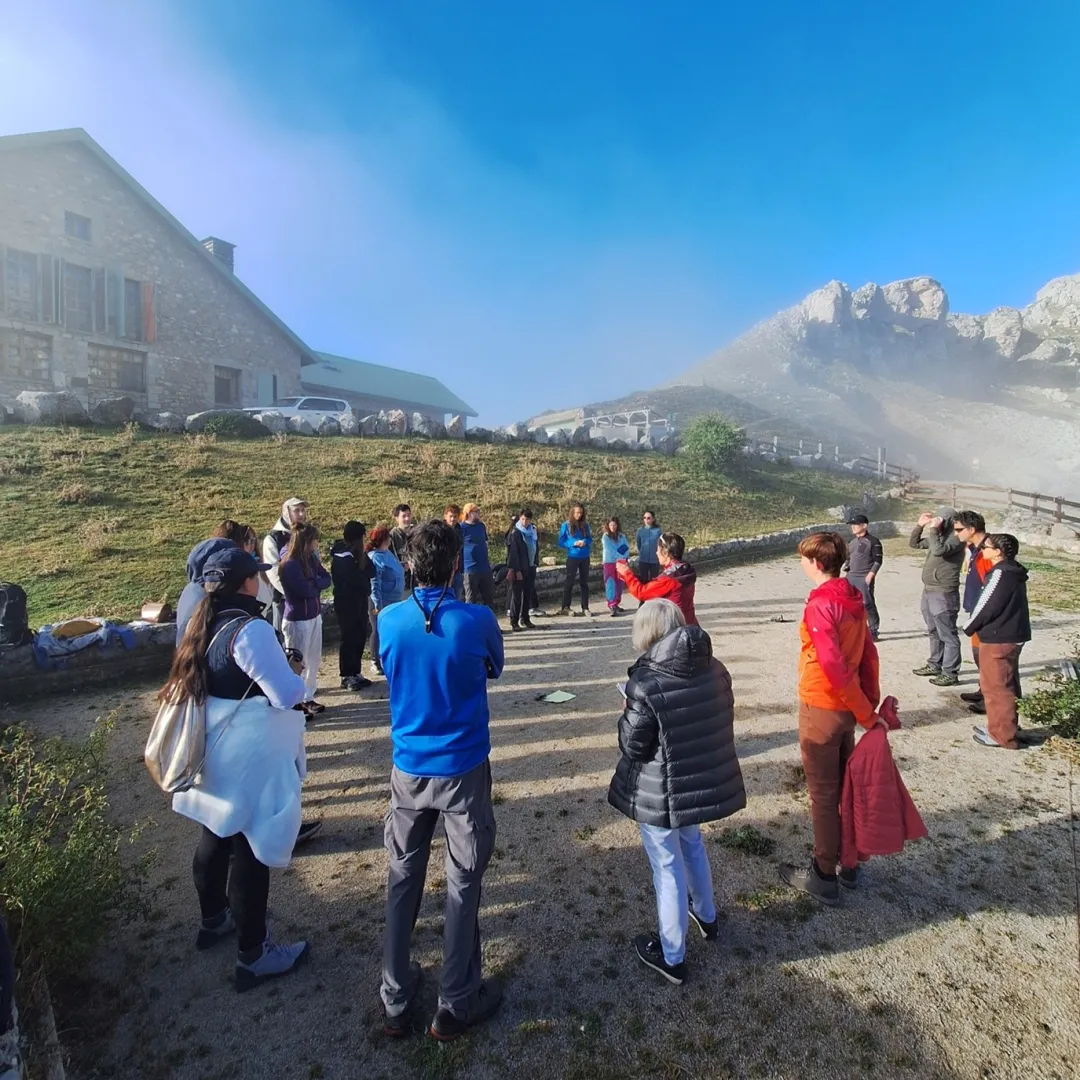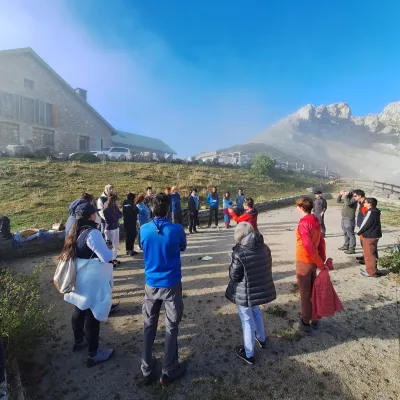Summary
The STARLIGHT Erasmus+ project promotes rural development by training young people aged 18–30 and tourism professionals in the emerging field of astrotourism. The project highlights dark skies as both a natural asset and a market opportunity for sustainable and experiential tourism.
The project equipped participants with interdisciplinary knowledge and practical skills to create innovative tourism experiences that protect biodiversity and raise awareness about light pollution.
Results
- Over 50 young people and professionals received training in astrotourism, environmental literacy, and sustainable business design.
- The STARLIGHT Toolkit was developed and published as a free, open-source learning resource for future use.
- The project produced two practical guides:
- Working Guidance on building a tourism business proposal
- Summer School Format on replicating STARLIGHT’s residential training
- Participants created over 20 draft tourism concepts, including guided tours and night sky experiences, many of which were presented to local audiences during final multiplier events. Several participant projects were implemented locally, including astronomy nights, cultural workshops, and awareness campaigns on light pollution.
- Public events, digital outreach, and project partner communications raised awareness of dark sky protection across participating regions.
Resources
Documents
Context
Artificial light at night (ALAN) is an emerging issue, including in peri-urban rural regions where increased development has intensified light pollution, disrupting ecosystems and biodiversity and threatening nocturnal wildlife and natural rhythms.
At the same time, the growing market for experiential and eco-conscious travel presents an opportunity to turn dark skies into a unique tourism offer.
The STARLIGHT project supports young people and rural tourism operators to build sustainable livelihoods around the protection of dark skies, addressing rural depopulation, youth unemployment, and limited use of environmental and cultural assets.
Objectives
- Increase job opportunities for young people in rural areas by supporting careers in sustainable, experience-based tourism;
- Provide upskilling to existing tourism professionals through interdisciplinary training in astronomy, biodiversity, and cultural heritage;
- Raise awareness of light pollution and its ecological impacts, while promoting the preservation of natural nightscapes;
- Support the creation of new tourism services and products through hands-on learning and business development support;
- Position astrotourism as a viable and competitive niche within broader rural and sustainable tourism strategies.
Activities, key actors, and timeline
The project kicked off with an open call to recruit young participants and tourism professionals from across six countries. Selected participants gained access to the STARLIGHT Toolkit, an online learning resource of 92 units across three thematic sections:
- ‘Passion of the People’, exploring cultural, scientific, and artistic connections with the stars;
- ‘Bright Side of the Night’, examining the ecological and health impacts of light pollution;
- ‘Stardust and Eternity’, presenting contemporary findings in astronomy and astrophysics.
Each unit combines theoretical insights with practical examples, making the toolkit an accessible and valuable resource for those interested in gaining dark sky tourism experiences.
A series of webinars with international experts explored the environmental, economic, and cultural value of dark skies, introducing participants to real-life applications of astrotourism.
Three five-day summer schools were held in Bulgaria, Italy, and Spain, offering immersive, hands-on learning. Participants worked with local experts to draft proposals for guided tours and innovative products in astrotourism, using the Experience Boxes designed by the project for this training. The final project events – in Bulgaria, Italy, and Spain – enabled participants to showcase and present their tourism concepts to local communities, authorities, and entrepreneurs.
Success factors/lessons learnt
- The project’s interdisciplinary approach – combining science, tourism, and culture – was key to engaging participants and stimulating creativity.
- The residential summer schools proved highly effective in fostering peer learning, confidence, and local networks. Local implementation of participant proposals demonstrated that youth-led tourism development can have tangible and immediate impacts in rural communities.
- The modular learning structure, starting with a digital toolkit and ending in practical design challenges, helped participants build knowledge progressively and apply it in real settings. The open-access materials and replicable summer school format ensure that the approach can be transferred to other rural regions facing similar challenges.
- By positioning dark skies as both a cultural and economic asset, STARLIGHT inspired new models of tourism that are environmentally sustainable and locally grounded.
Contacts
- Daniele Gardiol, daniele.gardiol@inaf.it
- Remy Baltieri, comunicazione@evv.it

